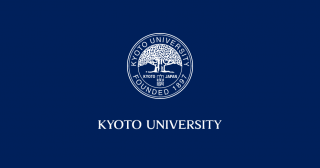On 18 November, Kokoro Research Center (KRC) hosted the third Kyoto Kokoro Initiative Symposium, themed " Kokoro and Ways of Life: What is the Self?", at Kyoto University's International Science Innovation Building.
The Kyoto Kokoro Initiative (KKI) is an interdisciplinary research project dedicated to investigating the kokoro (mind, psyche, or consciousness) from wide-ranging perspectives. It was launched in 2015 with support from Inamori Foundation, and over the next three years presented three public events: the First KKI Symposium, " Kokoro and Historicity" (2015); the Second KKI Symposium, "In and Out of Kokoro " (2016); and the First International KKI Symposium, " Kokoro and Symbiosis" (2017).
This fourth event, focusing on the kokoro's inwardness and individuality rather than its expansive breadth — which was highlighted in the first three symposia — began with KRC Program-Specific Professor Hiroshi Yoshioka, the master of ceremonies, greeting the 200-strong audience and introducing KRC Director Toshio Kawai, who then delivered opening remarks.
This was followed by the day's first presentation, "Molecular Bases of Mind for Living in the Society", where Professor Miho Murayama, director of the KyotoU Wildlife Research Center (WRC), described studies linking genetics to behavioral and personality differences among species and individuals.
The second speaker was KRC Associate Professor Yukiko Uchida, whose presentation, entitled "Ways of Life and the Self in Japanese Society: Examination of Biological/Psychological Data of Japanese Company Employees", explored the Japanese sense of self with a focus on its two "pillars": interdependence and independence. Drawing on cultural and social psychology research comparing the country's different regions and companies, Dr Uchida explained how interdependence and independence orientations may be correlated to health and happiness.
Finally, the Graduate School of Letters' Professor Yasuo Deguchi, an analytic philosopher investigating Kyoto School and other East Asian Buddhist concepts, presented on "Self as We and Its Implications for Our Ways of Life". He discussed the concept of "we-self", contrasting it with the individualistic self-construal that has supported Western society since early modern times, and suggested the possibility that a "we-self" identity may contribute to personal and societal transformation.
The three speakers then took part in a discussion, moderated by KRC Director Kawai. In the context of the symposium's overarching theme and based on the day's presentations, the panelists addressed a wide range of topics, including those beyond their fields of study, such as the implications of cooperative behaviors among humans and other animals, the self-body relationship, and notable features of a Japanese community.
The symposium concluded with remarks from Dr Nagahiro Minato, Kyoto University's provost and executive vice-president for strategy coordination, research, planning, and hospital administration. After offering his thoughts on one of the topics addressed in the panel discussion, "self and somatic agency", from his perspective as an immunologist, he reflected on the previous KKI activities and stressed the need for the University to explore new ways to share its humanities achievements with the world.
Extended presentation summaries
- Miho Murayama, "Molecular Bases of the Mind for Living in Society"
- Yukiko Uchida, "The Ways of Life and the Self in Japanese Society: Examination of Biological/Psychological Data of Japanese Company Employees"
- Yasuo Deguchi, "Self as We and Its Implications for Our Ways of Life"

KRC Program-Specific Professor Yoshioka

KRC Director Kawai

Graduate School of Letters Professor Deguchi

WRC Director Murayama

KyotoU Provost/EVP Minato

KRC Associate Professor Uchida

Panel discussion





